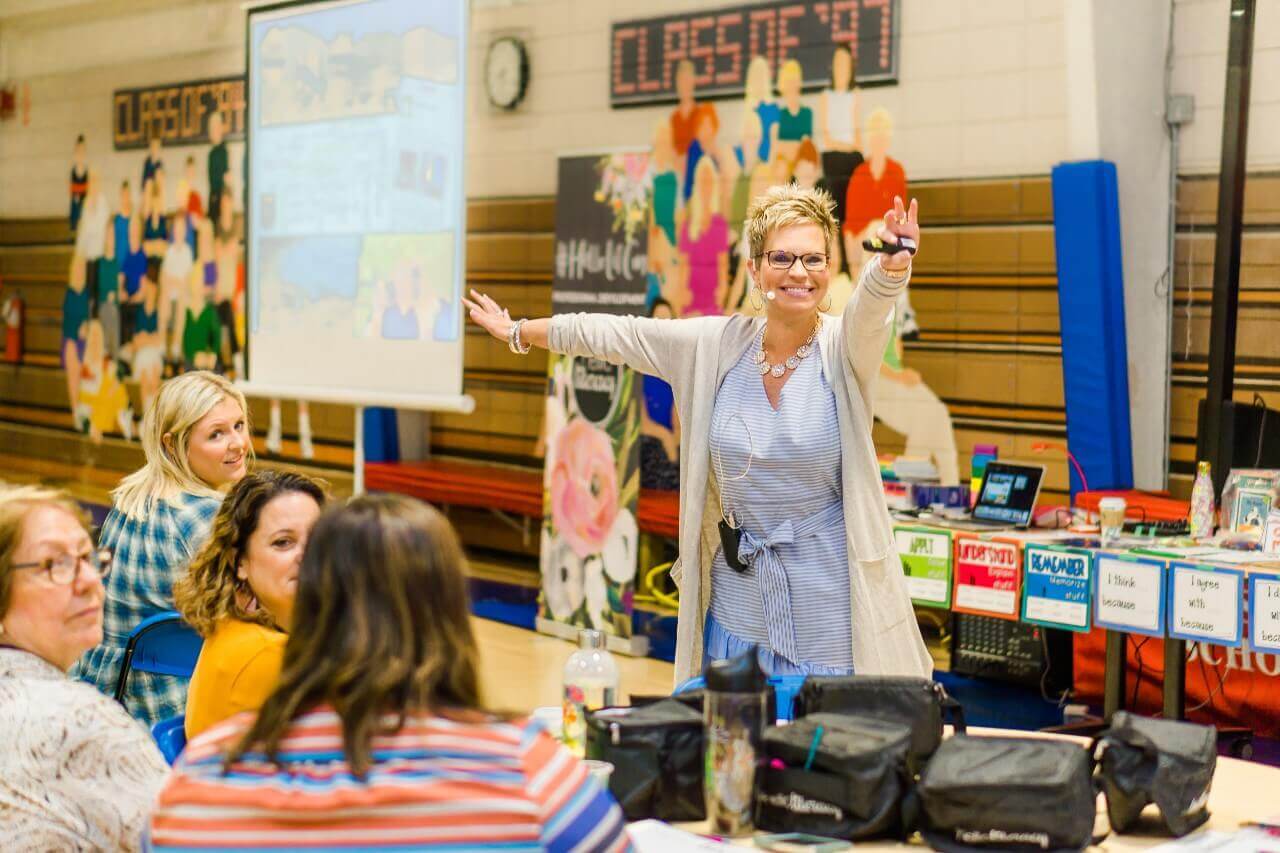
· By Jen Jones
Building Blocks of Education: A Guide to Foundational Knowledge
The Importance of Foundational Knowledge
Foundational knowledge is the bedrock of education. It includes the basic facts, concepts, and skills that students need to succeed academically and in life. Think of it as the first steps on a learning pyramid. This pyramid starts with simple things you remember and understand, then builds up to more complex skills like analyzing, evaluating, and creating.
Here are key points about foundational knowledge:
- Importance: It's essential for academic success and lifelong learning.
- Educational Success: Foundational knowledge helps create a strong base for higher learning.
- Learning Pyramid: It starts with remembering and understanding, which are the foundation for higher-order thinking.
As Jen Jones, I've dedicated my career to helping students build these crucial skills. With over 30 years of experience in education and literacy, I've developed many tools and strategies to support teachers and parents in fostering foundational knowledge.

Find more about foundational knowledge: - reading foundational skills - how do handwriting foundational skills support literacy - why is literacy important in the foundation phase
What is Foundational Knowledge?
Foundational Knowledge in Education
Foundational knowledge refers to the basic building blocks of education. These are the essential facts, terms, and concepts that form the basis for more advanced learning. According to Bloom’s Taxonomy, foundational knowledge encompasses the lower-order cognitive skills of remembering and understanding.
- Remembering: This is the ability to recall previously learned information. It involves recognizing or recalling facts, terms, and basic concepts. For example, remembering the stages of the cell cycle or defining the Renaissance.
- Understanding: This goes a step further and involves comprehending the material. It includes summarizing, explaining, and interpreting information. For instance, summarizing how a cell divides or giving an example of a Renaissance painter.
In education, foundational knowledge is crucial for subjects like reading, writing, mathematics, and reasoning. These subjects lay the groundwork for more complex skills and critical thinking.
Examples of Foundational Knowledge
Foundational knowledge is made up of facts, terms, and concepts that students must know to progress in their education. Here are some examples:
- Reading: Understanding the alphabet, phonics, and basic vocabulary.
- Writing: Knowing grammar rules, sentence structure, and basic writing techniques.
- Mathematics: Learning numbers, basic arithmetic operations, and simple geometric shapes.
- Reasoning: Developing logical thinking and problem-solving skills.
Foundational knowledge also includes critical thinking and problem-solving abilities. For example, understanding the principles of democracy can help students engage in informed discussions and make reasoned decisions.

Jen Jones emphasizes the importance of a strong foundation in education: "Without a solid base of foundational knowledge, students struggle to build higher-order thinking skills. It's like trying to build a house without a foundation."
In summary, foundational knowledge is the essential groundwork upon which all other learning is built. It is the first step in the learning pyramid, enabling students to progress to more advanced cognitive skills and critical thinking.
The Role of Foundational Knowledge in Learning
Foundational knowledge plays a crucial role in learning by shaping our mental models, influencing perception, and enhancing memory and engagement. It forms the bedrock upon which all other types of learning are built.
Natural vs. Designed Learning
Learning can occur naturally or by design. Natural learning happens through life experiences. For instance, a child learns to speak by mimicking adults. They build foundational knowledge of language without formal instruction.
Designed learning, on the other hand, is structured and intentional. Educational systems and curricula are designed to provide foundational knowledge in a systematic way. Schools teach subjects like science, math, and history to ensure students have the essential facts and concepts needed for advanced learning.
Foundational Knowledge in Different Subjects
Foundational knowledge varies across different subjects, but it always serves as the groundwork for more complex understanding.
- Science: Basic concepts like the scientific method, fundamental principles of biology, chemistry, and physics.
- Math: Core ideas such as arithmetic, algebra, geometry, and basic calculus.
- Engineering: Foundational knowledge includes understanding physics, material science, and basic design principles.
- Technology: Basic programming concepts, understanding hardware and software, and digital literacy.
- Arts: Key elements like color theory, basic techniques in drawing or painting, and understanding art history.
- History: Major events, dates, and figures that have shaped the world.
- Literature: Understanding literary devices, genres, and major works of literature.
- Linguistics: Basic grammar, syntax, and phonetics.
- Environmentalism: Key concepts like ecosystems, sustainability, and climate change.
- Geography: Basic knowledge of continents, countries, and physical features of the Earth.
- Language: Grammar rules, vocabulary, and sentence structure in different languages.
Building Mental Models
Foundational knowledge helps create mental models—internal representations of the world that we use to understand and interact with our environment. For example, knowing the basics of traffic laws helps you steer roads safely. These models are essential for problem-solving and critical thinking.
Enhancing Perception and Memory
Perception and memory are closely linked to foundational knowledge. When you have a strong foundation, you can better perceive and remember new information. For instance, a student with a solid understanding of basic math will find it easier to grasp advanced algebra.
Increasing Engagement
Students who have a good grasp of foundational knowledge are more likely to be engaged in their learning. They can follow along in class, participate in discussions, and tackle more challenging problems. Engaged students are more motivated and perform better academically.

In conclusion, foundational knowledge is the cornerstone of effective learning. It shapes our mental models, improves perception and memory, and increases engagement. Whether acquired naturally or through designed learning, it is essential for success in all areas of education and beyond.
Next, let's explore strategies to build foundational knowledge and how to create a conducive learning environment.
Strategies to Build Foundational Knowledge
Creating a Conducive Learning Environment
A conducive learning environment is crucial for building foundational knowledge. It fosters trust, mutual respect, and psychological safety, allowing students to engage deeply with the material.
Trust and Mutual Respect
Nurse educator P7 emphasized the importance of trust: “Where there is trust, the learners will engage in discussions, arguments, and sharing of ideas without fear of being judged. They will know that it is ‘ok’ to make mistakes.” This sentiment is echoed by P1, who noted that mutual respect assures students that their input is valued.
Psychological Safety
Creating a psychologically safe space encourages students to participate without fear of ridicule. As P4 pointed out, an environment where students can challenge their own thinking and that of others—including the teacher—without fear of victimization, is critical for fostering foundational knowledge.
Engagement
Engagement is higher in a supportive environment. When students feel safe, they are more likely to participate in discussions, ask questions, and take risks in their learning. This active engagement is essential for building foundational knowledge.
Facilitating Critical Thinking
To build foundational knowledge effectively, educators need to facilitate critical thinking. This involves using various teaching strategies that stimulate retrieval and application of core concepts.
Questioning and Argumentation
Questioning is a powerful tool for stimulating foundational knowledge. P9 highlighted that questioning helps students retrieve and apply their foundational knowledge. Similarly, argumentation encourages students to use their foundational knowledge to construct new ideas. P6 emphasized that argumentation and group discussions should be used to stimulate critical thinking.
Conceptual and Procedural Knowledge
Foundational knowledge includes both conceptual (information) and procedural (process-based) knowledge. P4 mentioned that using conceptual knowledge brings procedural knowledge into play, which is essential for problem-solving.
Interdisciplinary Perspectives
Critical thinking often requires an interdisciplinary approach. P3 noted that the ability to use foundational knowledge as a frame of reference enables students to adopt perspectives from multiple disciplines, facilitating a broader understanding.
Teaching Strategies
Effective teaching strategies include:
- Retrieval Practice: Encouraging students to recall information helps strengthen their foundational knowledge.
- Group Discussion: Facilitates the exchange of ideas and helps students see different perspectives.
- Argumentation: Encourages students to construct and defend their ideas, deepening their understanding.
Case Study: Nursing Education
In nursing, foundational knowledge is crucial for making clinical decisions and providing patient care. Nurse educators use questioning, argumentation, and group discussions to help students apply their foundational knowledge to real-world scenarios. This approach not only builds their critical thinking skills but also prepares them for professional practice.
By fostering a conducive learning environment and facilitating critical thinking, educators can help students build a strong foundation of knowledge. This foundation is essential for success in any field, whether it be nursing, engineering, or the arts.
Next, we'll explore foundational knowledge in professional fields and how it applies to different careers.
Foundational Knowledge in Professional Fields
Foundational knowledge is not just for the classroom; it plays a vital role in professional fields. Let's explore two key areas: nursing and leadership.
Case Study: Nursing Education
In nursing, foundational knowledge is essential for making clinical decisions and providing effective patient care. Nurse educators emphasize the integration of core concepts with critical thinking to prepare students for real-world scenarios.
Clinical Decisions and Patient Care
Nursing students rely on foundational knowledge to interpret patient symptoms, diagnose conditions, and create care plans. For example, understanding the basics of human anatomy and physiology is crucial for assessing a patient's health status. This knowledge acts as an anchor, enabling nurses to make informed decisions that can significantly impact patient outcomes.
Teaching Strategies in Nursing
Nurse educators use various strategies to build and apply foundational knowledge:
- Questioning: This helps students recall and apply core concepts. For instance, asking students to explain the relationship between respiratory and circulatory systems can deepen their understanding.
- Argumentation and Group Discussions: These methods encourage students to analyze, evaluate, and justify their clinical decisions, fostering a collaborative learning environment.
- Simulation: Real-world scenarios are simulated to allow students to apply their foundational knowledge in a controlled setting, enhancing their problem-solving skills.
Foundational Competencies
Critical thinking is a foundational competency in nursing. According to a study, students use their foundational knowledge as an anchor to construct new knowledge and develop domain-specific skills. This approach prepares them for the complexities of patient care, making them more effective and confident practitioners.
Foundational Knowledge in Leadership
Leadership also heavily relies on foundational knowledge. Effective leaders use their core competencies to guide teams, make strategic decisions, and drive organizational success.
Leadership Skills and Intentional Learning
Foundational knowledge in leadership includes understanding human behavior, organizational dynamics, and strategic planning. Leaders who continuously build on this knowledge through intentional learning are better equipped to adapt to changing environments.
Career Advantages
Leaders with strong foundational knowledge are more likely to excel in their careers. They can:
- Build a Unifying Vision: Understanding core principles helps leaders create and communicate a clear vision for their team or organization.
- Develop Strategies: Foundational knowledge in areas like economics and management enables leaders to devise effective strategies.
- Motivate and Hire the Right People: Knowledge of human resources and psychology aids in building strong, motivated teams.
Real-World Application
For example, a leader with a foundational understanding of economics can better steer financial challenges, while knowledge of psychology can improve team dynamics and employee satisfaction. These competencies are crucial for achieving long-term success and fostering a positive organizational culture.
Next, we'll dig into frequently asked questions about foundational knowledge and provide practical insights for enhancing your learning journey.
Frequently Asked Questions about Foundational Knowledge
What are examples of foundational knowledge?
Foundational knowledge refers to the basic building blocks of learning. In education, this often includes:
- Reading: Understanding phonics, vocabulary, and comprehension skills.
- Writing: Grasping grammar, sentence structure, and composition.
- Mathematics: Mastering basic arithmetic, algebra, and geometry.
- Reasoning: Developing logical thinking and problem-solving skills.
These skills form the basis for more complex learning and are essential for academic success.
What is the definition of foundational knowledge?
Foundational knowledge is defined by Bloom's Taxonomy as lower-order cognitive skills, which include:
- Remembering: Recalling facts, terms, and basic concepts.
- Understanding: Comprehending and interpreting information within a larger context.
These skills are the first steps in the learning hierarchy and are crucial for building a strong educational foundation.
What is a good foundation knowledge?
A good foundation knowledge encompasses a comprehensive understanding of essential concepts and skills. It is built through:
- Educational Resources: Utilizing books, articles, and online courses to gain knowledge.
- Practice and Application: Engaging in exercises that reinforce learning.
- Critical Thinking: Applying foundational knowledge to solve problems and make informed decisions.
For example, reading a variety of texts can improve vocabulary and comprehension, while practicing math problems improves numerical proficiency.
By focusing on these areas, learners can develop a robust foundation that supports advanced learning and practical application in various fields.
Conclusion
At Hello Decodables, we believe that building a strong foundation in literacy is crucial for academic success. As an educational publishing company, we specialize in creating phonics-based decodable books that help children master reading skills through a structured approach.
Our method is grounded in the Science of Reading, which emphasizes a systematic and explicit approach to phonics instruction. This means teaching children the relationships between letters and sounds in a clear, methodical way, followed by ample opportunities to practice these skills in controlled, decodable texts.
Why Phonics-Based Decodable Books?
Phonics-based decodable books are designed to reinforce the phonics skills that children are learning. Unlike other types of reading materials, decodable books use a controlled vocabulary that aligns with the phonics rules children have been taught. This structured approach ensures that children can practice new skills in a meaningful context, boosting their confidence and reading fluency.
The Science of Reading
Research has shown that a structured, systematic approach to phonics instruction is the most effective way to teach reading. The Science of Reading supports the use of decodable books because they provide targeted practice that helps children solidify their understanding of phonics. By focusing on one phonics skill at a time, children can build a strong foundation that will support more advanced reading and comprehension skills.
Phonics Success
Our goal at Hello Decodables is to fast-track students on their reading journey. By using our decodable books, teachers and parents can provide children with the tools they need to succeed. The result is not just improved reading skills but a lifelong love of learning.
For more information on how our decodable books can support your child's reading journey, visit our Hello Decodables Guide to Decodable Books.
By focusing on foundational knowledge and using evidence-based methods, we can help every child become a confident, proficient reader.
